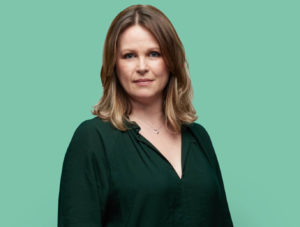I personally feel as though we rarely see large B2B organisations supporting social movements in the way that consumer brands do. We’re generally a little behind B2C when it comes to following trends, but this is something that’s always confused me. Is there some strange phenomenon where people get to work and care less? Or are B2B organisations misguidedly afraid to alienate potential customers with ‘politics’ in a way that B2C organisations just aren’t? How should we combat that fear?
There’s never been so much competition and commoditization, regardless of what vertical or niche a B2B brand plays in.
The lines that once were very firmly in place are blurring between B2B and B2C. The way B2B buyers shop is incredibly similar to how they may research/decide on consumer purchases. They are served personalized ads based on their digital behaviour, they are consuming content through social channels in a passive way i.e. scrolling through a LinkedIn or IG news feed. They are asking their peers/contacts for recommendations and sharing content created by brands.
One of those surefire tools for differentiating your B2B brand to buyers is to make your values clear, and a very public part of how you do business.
Likewise, there are similar market pressures in place for B2B teams – of any size, startup to enterprise. One, in particular, is the fact that there’s never been so much competition and commoditization, regardless of what vertical or niche a B2B brand plays in. Marketing technology? Over 9,000 options, many overlapping in functionality. HR technology, supply chain software, IT – the same story. Competition breeds new, creative ways for differentiation.
One of those surefire tools for differentiating your B2B brand to buyers is to make your values clear, and a very public part of how you do business. Some examples:
- Salesforce’s “no software” mantra that led the era of cloud computing
- Hubspot’s evangelism and coining of the term “inbound marketing” to encompass SEO, social media, and content marketing tactics.
Other ways manifest themselves in the employer brand, such as HelpScout’s transparency about pay structure and more.
The benefits of value-driven approaches are to earn trust, differentiate, and recruit talent. But it’s also a highly psychological choice
More recently we’ve seen B2B brands take extraordinary steps to make their values clear in a way that starts to intersect with the social movements defining our time e.g. racial justice and the Black Lives Matter movement. Companies like Microsoft and IBM (see this great blog from TopRank) made their stances known on this issue.
The CEO of Expensify sent an email to 10M customers urging them to vote for a specific presidential candidate in the 2020 US elections.
Basecamp made headlines for trying to keep the wall up between work and society/politics, resulting in a third of the employee base resigning.
The benefits of value-driven approaches are to earn trust, differentiate, and recruit talent. But it’s also a highly psychological choice – research shows that B2B buyers make more personal decisions- values and inspiration. I loved what Rory Sutherland said [in one of Boss to Boss’ previous interviews]:
However, in a B2B environment, there are extraordinary biases between what is in the interest of the decision-maker personally – his career, job satisfaction, etc – and what is in the interest of the organisation as a whole. The reason we under-explore these biases is because of the Objectivity Trap; the pretence that because we’re dealing with a business suddenly everything becomes dehumanised and rational. That once someone puts on a suit and sits behind a desk they effectively become homo economicus. This could not be further from the truth.
One of the most famous instances of social movement marketing was when Nike featured football star Colin Kaepernick in one of their ads. The backlash was huge. People called for a boycott of the brand, destroyed their trainers and cut Nike’s signature swoosh off their socks. It could have been a PR nightmare – but looking back, the support the ad received was great, but it was the backlash that made the news and kept it trending for weeks. It was like an ad that you couldn’t get away from. Nike’s name was everywhere.
Nike must believe now that the trajectory of the social narrative since then has vindicated their position, but it was a huge gamble at the time. How do smart marketers navigate this path between, on the one hand, using public emotion (both positive and negative) to place their brand at the heart of social discourse, and on the other hand, mitigate the risks of alienating huge parts of their customer base?
I disagree only with the idea that this was a gamble on Nike’s part. Kaepernick’s profile and star power is on the rise, and saw strong financial performance following the now Emmy-award-winning campaign.
“The campaign, which was announced with a simple tweet by Mr. Kaepernick, has also generated at least $43 million in free advertising for Nike, according to one estimate.”
This was all intentional. Nike had targeted this campaign to the 2/3 of individuals in the US who wear Nike who are under 35 years old, and far more racially diverse than the baby boomer population (NPD Group.)
What’s your take on Burger King’s recent international women’s day tweets? Was it a clever way to utilise outrage attention? Or was it just normalising the use of a misguided, boarding-on insulting phrase on a day that is supposed to be about women’s empowerment?
Misogynistic clickbait isn’t a good look right now. More consumers than ever expect brands to stand for values such as equality and inclusion.
The intent of Burger King’s campaign was to use a controversial line of copy to – to your point – create the kind of outrage that drives much of the engagement on social channels. I can understand the intended strategy to reclaim the insult that “women belong in the kitchen” in order to promote a new initiative to increase the number of women who are head chefs.
“Our aim was to draw attention to the fact that only 20 percent of professional chefs in UK kitchens are women and to help change that by awarding culinary scholarships.”
In this climate, with tensions so high and during a global pandemic, there may have been a better time to stir the pot.

I think the issue came down to context and formatting. In a newspaper ad, the controversial headline would appear above the fold and it would be easy for the reader to see the full context and the very positive message. On Twitter, the tweet appeared solo and finite, as if there was no more to be seen. It fed the trolls, in a sense.
More broadly, misogynistic clickbait isn’t a good look right now. More consumers than ever expect brands to stand for values such as equality and inclusion. In my opinion, in this climate, with tensions so high and during a global pandemic, there may have been a better time to stir the pot.
Plus, given where consumer attitudes are (according to Edelman, 56% of buyers think too many brands use societal issues as a marketing ploy to sell more of their product) the bar is high for brands who enter into topics such as feminism.




